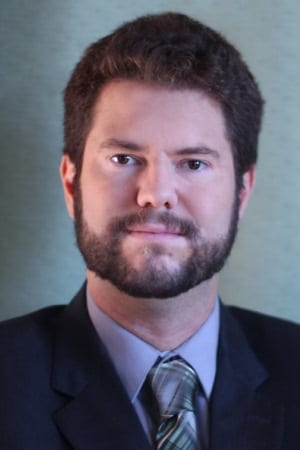Patrick Marcus, a Tucson-based biomedical engineer, artist, and entrepreneur, is on the move: He is phasing out his involvement in two Tucson high-tech companies and launching a third, Marcus Engineering LLC, an engineering and technology business-development firm.
Dr. Marcus is also an emerging civic leader. He recently spoke to the Civic Leadership Conversation about his experience in the inaugural class of the Flinn-Brown Civic Leadership Academy.

Q. In what ways do you see others’ practice of civic leadership affecting you as the owner of a small business? Has your perception of such impact changed or become more nuanced over the course of your participation in the Academy?
A. The practices of civic policymakers have tremendous impact on my business. Obviously, my business’s success is impacted by the direction of the Arizona Corporation Commission and the Arizona Commerce Authority with regard to targeted technology areas, attraction of complementary companies, and grant money.
Many companies wouldn’t get started without good policy driving grant opportunities, developing incubators, and providing other small business support. That’s really just the tip of the iceberg, though: The indirect impact of education policy covering the P-20 levels, transportation issues, immigration, and health care all affect my ability to draw employees, form partnerships, attract investment capital and generate locale-based credibility.
Arizona must be viewed as a forward-looking, tech-oriented state with an eye to the future in order to draw long-term high-tech growth. It’s much easier to draw that hot-shot chief technology officer from Silicon Valley and encourage our PhD graduates to stay in Arizona if you can tell them that their kids will have a top notch education, that their mean commute time to the office is short, that venture capitalists love Arizona’s high-tech company density, and that opportunities for partnerships with local universities are the best around.
Although small technology businesses often keep their head in the sand and work in isolation, the community around us has an impact on our ability to grow, can greatly ease the path to success, and in many cases determines whether we even get a company started in the first place. All state policies, when properly focused, can drive the kind of healthy high-tech growth environment from which a business like mine will directly benefit.
My participation in the Academy has increased my awareness of the critical role that strong policy plays in the growth of my business. I think it is imperative that business owners have a role in steering Arizona public policy.
Q. What part of the Academy’s program of study have you found most helpful in the development of your leadership repertoire?
A. The core benefit of the Academy for me was not education in any particular area of public policy, but rather the broader understanding I gained about how complex the system of policy creation is and about who the major players are. It was fascinating to me, how much of public policy is driven by those behind the scenes and outside of elected offices.
Forming a network of trusted peers among the other Fellows, as well as having a means of linking into current leadership circles was the other major addition to my repertoire. Often, just knowing where to go and who to talk to are major hurdles to having an impact.
Q. How has participating in the Academy shaped your thoughts about—and plans for—how you will engage in civic leadership in the future?
A. My plans have not changed, but my confidence that I will be an effective leader has grown considerably. I realize now that many of the people involved in public policy are passionate and thoughtful, just like me.
The challenge for a policy maker is the same as for that of a voter: Gather good information and develop trusted resources for obtaining that information. With accurate and reliable information and resources, decisions become much more straightforward. I still plan to participate in the areas in which I am personally invested and passionate about: higher education and support of a high-tech workforce for Arizona’s economic health.